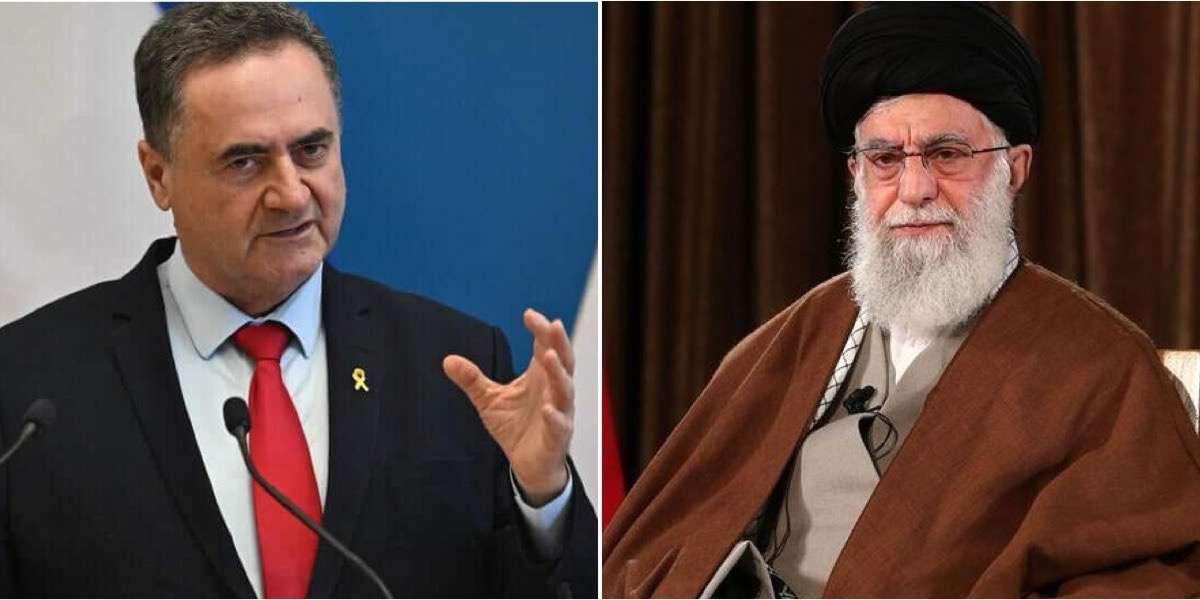An Israeli hospital was hit in an Iranian missile strike on Thursday, spiking tensions in the week-old war.
Israel’s defence minister has warned that Iran’s supreme leader “Can no longer be allowed to exist” while President Donald Trump dangled the prospect of US involvement.
Soroka Hospital in the southern city of Beersheba was left in flames by a bombardment that Iran said targeted a military and intelligence base.
Israel, fearing Iran is on the verge of developing a nuclear weapon, launched air strikes against its arch enemy last week, triggering a conflict that has left more than 200 people dead on both sides.
Prime Minister Benjamin Netanyahu said Iran would “pay a heavy price” for the hospital strike, while Defence Minister Israel Katz issued a stark warning for supreme leader Ayatollah Ali Khamenei.
Hospital director Shlomi Codish said 40 people were injured at the Soroka, where an evacuated surgical building was hit leaving smoke billowing.
“Several wards were completely demolished and there is extensive damage across the entire hospital with damage to buildings, structures, windows, ceilings across the medical centre,” he told journalists at the site.
The latest escalation came on the seventh day of deadly exchanges between the two countries that have plunged the region into a new crisis, 19 months into the Gaza war.
Daily barrages
On Thursday morning, Israel said it had carried out dozens of fresh raids on Iranian targets overnight, including the partially built Arak nuclear reactor and a uranium enrichment facility in Natanz.
The Israeli military said the Arak site in central Iran had been hit “To prevent the reactor from being restored and used for nuclear weapons development”.
An Israeli military official, who asked not to be named, said Wednesday that Iran had fired around 400 ballistic missiles and 1,000 drones since the conflict began on Friday.
Iranian strikes have killed at least 24 people and injured hundreds since they began, Netanyahu’s office said on Monday.
Iran said Sunday that Israeli strikes had killed at least 224 people, including military commanders, nuclear scientists and civilians.
Iran had been enriching uranium to 60 per cent – far above the 3.67-per cent limit set by the 2015 deal, but still short of the 90 per cent needed for a nuclear warhead.
Israel has maintained ambiguity on its own arsenal, but the Stockholm International Peace Research Institute says it has 90 nuclear warheads.
‘I may do it, I may not’
Khamenei has rejected Trump’s demand for an “unconditional surrender”, despite the president’s claims that “Iran’s got a lot of trouble and they want to negotiate”.
Trump has left his intentions on joining the conflict deliberately ambiguous, saying Wednesday: “I may do it, I may not do it. I mean, nobody knows what I’m going to do.
“The next week is going to be very big,” he added, without further details.
Any US involvement would be expected to involve the bombing of a crucial underground Iranian nuclear facility in Fordo, using specially developed bunker-busting bombs.
“I have ideas as to what to do, but I haven’t made a final (decision),” Trump said. “I like to make the final decision one second before it’s due, because things change. Especially with war.”
The Wall Street Journal reported that Trump had told aides on Tuesday he had approved attack plans but was holding off to see if Iran would give up its nuclear programme.
The US president had favoured a diplomatic route to end Iran’s nuclear programme, seeking a deal to replace the 2015 agreement he tore up in his first term.
But since Israel unleashed the campaign against Iran last week, Trump has stood behind the key US ally.
The military campaign has sparked calls for a return to diplomacy.
Russian President Vladimir Putin said Thursday that a deal to guarantee both Israel’s security and Iran’s desire for a civilian nuclear programme was possible.
“I believe it would be good for all of us together to look for ways to stop the fighting and seek ways for the participants in the conflict to find an agreement,” he told foreign journalists at a televised event.
Israel wants to be middle-east sole power – Ex-diplomat
However, a former Nigerian ambassador, Suleiman Dahiru, said in a telephone interview, that the war is asymmetrical, internationally sanctioned, and unlikely to be resolved diplomatically in the near term.
“In the first place, Israel wouldn’t have attacked Iran without the blessing of the United States,” Dahiru said, identifying Washington’s tacit approval as central to Tel Aviv’s assertive strategy.
He referenced President Trump’s reaction to Israeli strikes—saying Trump was “gloating” and had described the attacks as “excellent”—to underscore the perception of U.S. complicity.
Dahiru labelled Israel’s actions “unprovoked aggression,” reiterating that Iran did not initiate hostilities.
While acknowledging years of animosity between the two nations, he argued that Israel has habitually launched strikes on regional actors it sees as aligned with Tehran, including Hezbollah in Lebanon, the Houthis in Yemen, and Syrian targets.
“What is happening is that Israel, with the backing of the United States, wants to be the sole power in the Middle East,” Dahiru added.
He drew parallels to the 2003 invasion of Iraq, suggesting that Washington is again facilitating the dismantling of a perceived regional rival.
Commenting on Iran’s threats of retaliation, Dahiru questioned whether Tehran possesses the military strength to respond meaningfully. “We can even link it up with what is currently going on… Israel has inflicted a lot of damage on the nuclear facilities of Iran. It has assassinated top generals… and senior nuclear scientists, all within Iran itself.”
The retired diplomat lamented what he sees as Iran’s limited capacity to reciprocate. “Israel believes that it can do anything it wants to do within Iran, but Iran cannot do whatever it wants to do within Israel,” he said.
Citing death tolls as a stark indicator of imbalance, he noted, “Over 200 in Iran, 20-something in Israel—the gap is too wide.”
He described the unfolding events as “a one-sided war,” especially given the scale of U.S. political, logistical, and intelligence support. The fight, he said, is not between equals: “Even without the involvement of the United States directly, Israel is doing whatever it wants inside Iran with impunity.”
Dahiru warned that if Iran is eventually neutralised, Israel would solidify its uncontested dominance in the region. “Without any shadow of doubt, Israel has been the dominant power in the Middle East,” he said, pointing to the inaction of Arab states that are “Either afraid or have been captured by the United States.”
He further suggested that some Arab nations may “Even be happy with what is happening to Iran.” This reluctance to oppose Israeli actions, he argued, is rooted in sectarian divides—Sunni-majority Arab states watching as Shiite Iran bears the brunt of the conflict.
Dahiru characterised the war as part of a long-standing Western agenda, “Iraq was destroyed by the United States… Now Israel and the United States, actively supported by the Western world, are destroying Iran.”
On the question of third-party involvement, he dismissed the likelihood of regional escalation involving major powers like Russia or China.
“Russia is already bogged down in the war with Ukraine. Why should it get involved with another war?” he rhetorically asked.
Dahiru also doubted that any Middle Eastern state would step in, given sectarian divisions and strategic hesitations.
Looking ahead, the former ambassador was skeptical of diplomatic efforts to resolve the crisis. “Diplomacy at the moment—I don’t think is possible. Because both Israel and the United States are bent on destroying Iran,” he stated.











